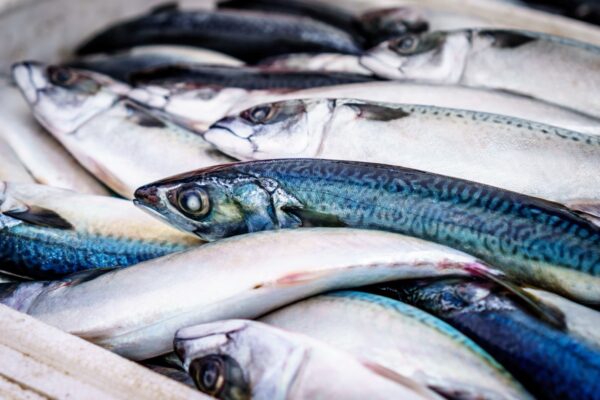The Marine Conservation Society’s latest ‘Good Fish Guide’ relegates mackerel from green list, while eel and Celtic cod remain on unsustainable red list.
Mackerel is no longer deemed a sustainable seafood choice after the Marine Conservation Society (MCS) has warned that populations of the fish have been in steady decline in recent years.
North-east Atlantic mackerel has been considered an environmentally-friendly choice for consumers since before 2011, but the species has become increasingly scarce and now experts are calling for more regulation over how its caught.
The MCS reviews 186 environmental ratings for seafood, with 20 species moving to the “fish to avoid” list in this year’s spring update to its Good Fish Guide. The charity is calling on UK governments to better manage all stocks and collect more data, with monitoring involving cameras.
Charlotte Coombes, Good Fish Guide manager at the MCS, said: “The north-east Atlantic mackerel population has been declining since 2015, which is concerning. Fishing communities and wildlife depend on this species, but continued overfishing is putting both at risk.”
Scottish fishing group responds
The Scottish Pelagic Sustainability Group (SPSG) has criticised the MCS’s latest update, which has downgraded north-east Atlantic mackerel from ‘green’ to ‘amber’. The SPSG says that given the current scientific status of the stock, this is an overly harsh assessment and mackerel should have retained its green status.
Ian Gatt, chairman of the SPSG says: “MCS states that the stock has declined since 2015, which is true but needs to be put into context. The scientific assessment of mackerel goes back to 1980, the 2015 stock biomass was the highest recorded in the 40-year study period at almost 6m tonnes. It’s clear that the ecosystem cannot carry that biomass of mackerel, therefore, the stock is back to above average levels. It is not true to say the stock continues to decline as it has been stable over the last couple of years. What’s also clear from the advice is there is a large influx of juvenile fish (recruitment) coming into the stock. This has been witnessed by our fishermen on the grounds.
“MCS has chosen one matrix to say the stock is overfished which is fishing pressure, but they completely ignored the fact that the stock biomass is 46% higher than ICES scientists’ assessment of maximum sustainable yield.”
Some good news for mackerel
However, mackerel caught by hand line in south-west England remains green-rated. This is a low-impact way of fishing, and catches are strictly controlled. There are also protections in place for juvenile mackerel to make sure they can reproduce before they are caught.
A spokesperson for the Department for Environment, Food and Rural Affairs said: “The UK is working intensively with its partners to agree a range of management measures designed to improve the long-term sustainability of mackerel stock, in addition to a new quota sharing arrangement.”
